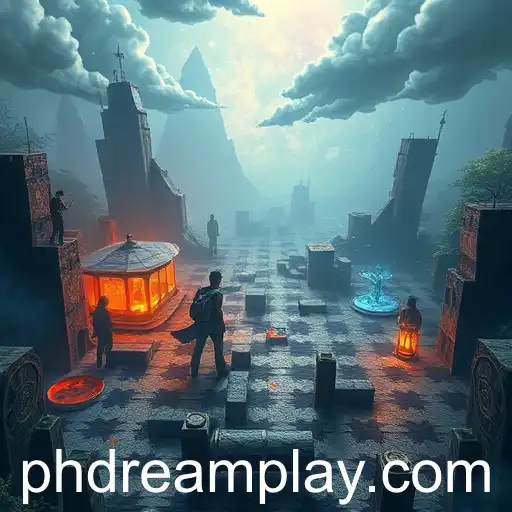phdream | Unlocking Creativity: The Allure of 'Word Puzzles' in the Digital Era

In the ever-evolving landscape of online gaming, word puzzles have carved a significant niche, captivating linguaphiles and casual gamers alike. The digital adaption of these puzzles has not only preserved their traditional charm but also enhanced their accessibility and variety. Among the multitude of platforms available, 'phdream' has emerged as a noteworthy player in this arena, offering an innovative approach to word puzzles.
Word puzzles are more than just a tool for passing time; they serve as an engaging exercise for the brain, promoting cognitive development and language skills. On websites like 'phdream', players encounter various styles of puzzles that challenge their vocabulary, spelling, and even lateral thinking skills. From classic crosswords and anagrams to modern iterations like word searches and cryptograms, these games demand a mix of patience, strategy, and creativity.
But what sets 'phdream' apart from other platforms? The answer lies in its ability to integrate user feedback, learning algorithms, and dynamic content updates to provide a personalized gaming experience. The website not only analyzes player patterns to adjust the difficulty of puzzles dynamically but also provides rewards and progression tracking to keep players engaged. This advanced level of interactivity and engagement ensures that users aren't just passive participants but active problem solvers who are constantly learning and improving.
Aside from entertainment, playing word puzzles offers a plethora of cognitive benefits. Scientific research suggests that engaging in such activities regularly can improve memory, enhance problem-solving skills, and even delay the onset of neurodegenerative diseases. Players often find themselves thinking outside the box, improving their linguistic prowess over time, and enjoying the satisfaction that comes from cracking particularly challenging puzzles.
The community aspect enhanced by platforms like 'phdream' further enriches the experience. Gamers can connect with others, share tips, compete in challenges, and celebrate victories together. This not only builds a sense of camaraderie among players but also fosters a vibrant community of individuals united by a love for language and challenge.
In conclusion, word puzzles continue to captivate a global audience by striking a perfect balance between education and entertainment. Platforms like 'phdream' exemplify how digital innovation can enhance traditional games, offering personalized, engaging, and intellectually stimulating experiences to a diverse user base. As technology continues to evolve, it will be intriguing to see how platforms further innovate to keep the art of word puzzles thriving in the digital age.



